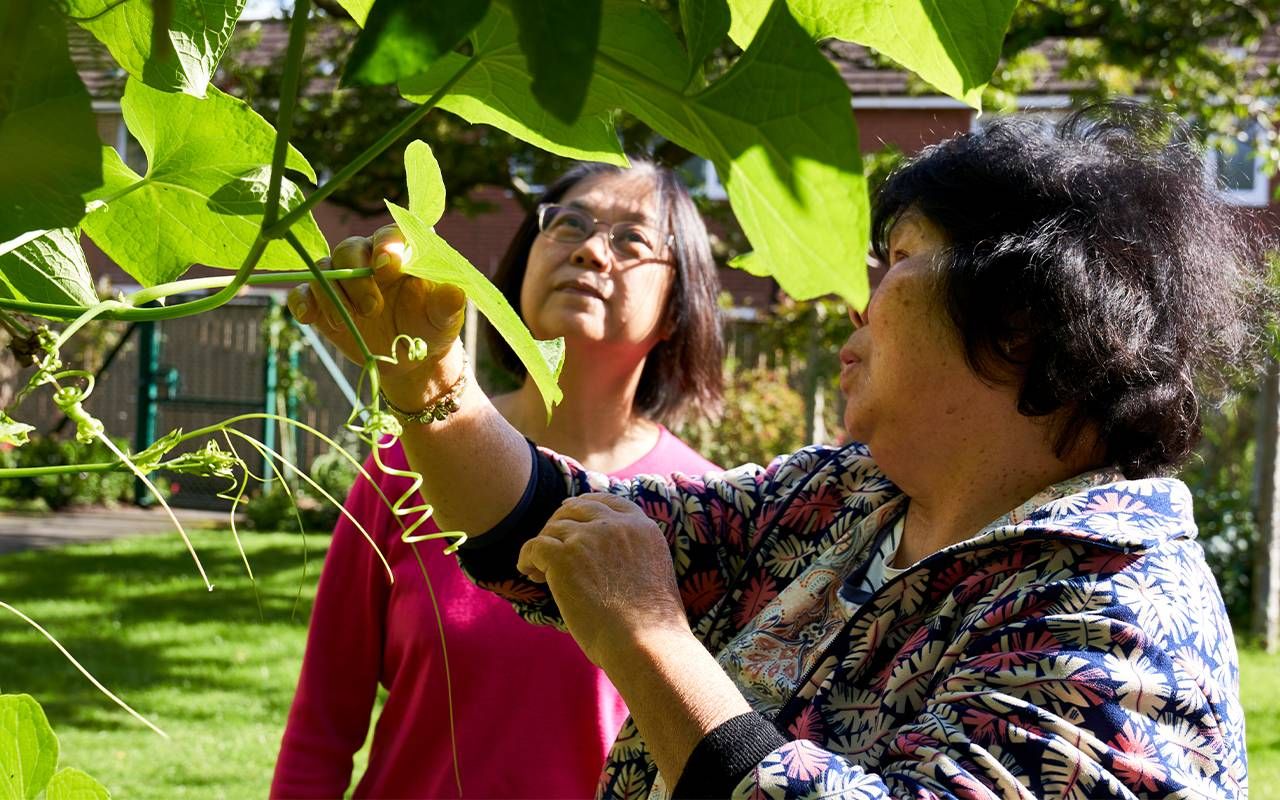How Spirituality Can Affect Caregiving
A new study points to ways spirituality can help people achieve better health outcomes
According to a recent study by Harvard T.H. Chan School of Public Health and Brigham and Women's Hospital, asking about a patient's spirituality can and should be a part of caregiving. In addition, spirituality could play a vital role in health care for those undergoing severe health issues and benefit an individual's overall well-being.

"Spirituality, the source of a person's core meaning, purpose and values, is important to health because it often forms the foundation for understanding and coping with health problems and how health-informed decisions are made," says Dr. Tracy Balboni, one of the study's lead authors and senior physician at the Dana-Farber Cancer Institute in Harvard.
Although spirituality can include religion, church service or other traditional activities, it is not exclusive to these forms of worship.
To illustrate, "If a person's root value is their connection with family, how they cope with and make decisions on illness will often be framed by family relationships. Similarly, someone whose core purpose, meaning and value is found in their faith, higher power or God may cope with health concerns through relating to God, such as prayer."
She adds, "Their medical decisions will likely reflect those values most consistent with the character and teachings of such a higher power."
The International Consensus Conference on Spiritual Care in Health Care defines spirituality as "the way individuals seek ultimate meaning, purpose, connection, value or transcendence." Although spirituality can include religion, church service or other traditional activities, it is not exclusive to those forms of worship.
Some may consider spirituality as a connection to the earth, commitment to fellow man, or following a curated group of traditions that resonate with their beliefs.
"Spirituality is a broad term that includes the myriad ways individuals experience core sources of meaning, purpose and value," says Balboni. "For some, this entails a particular religious tradition. For others, it is through avenues like connection to nature or family."
Spirituality & Health
Addressing a patient's spirituality may affect their health comprehensively. For example, the American Cancer Society suggests that people involve spirituality in their quality of life while faith helps them get through their illness.
Further, a 2021 study of breast cancer survivors at the University of Missouri's Ellis Fischel Cancer Center linked interventions such as prayer and mindfulness practices to improved outcomes for cancer patients and those living with chronic disease.
These studies may offer a tool for caregivers during severe illness, when patients have mobility issues or suffer from isolation and loneliness. Simply asking about a patient's spirituality or wish for a faith-based outlet can easily be added to patient-centric, compassionate care.
Besides, these conversations may lead to better medical decision-making, including visits from chaplains or other individuals trained in pastoral care. Finally, professionally, and perhaps even personally, a caregiver could benefit from considering the importance of spirituality in health care.
"Recognizing these core sources of meaning and attending to them is critical to upholding a person's well-being in the face of illness."
"This information reminds caregivers and health professionals that we are spiritual; we all have sources of core meaning, purpose and value that ground how we approach life, illness, and death. Yet, all too often, we fail to recognize those grounding sources within ourselves, our loved ones, and our patients," says Balboni.
"Recognizing these core sources of meaning and attending to them is critical to upholding a person's well-being in the face of illness."
Balboni explains that when patients find core meaning and purpose in work, they could experience a spiritual crisis if a sudden illness removes their ability to perform. In this scenario, "their foundation has been removed, and they need emotional and spiritual support to help them discover new sources of meaning, purpose, and value. Neglecting spirituality within illness can result in suffering becoming more severe."
Balboni believes caregivers and health professionals should consider faith-based or spiritual needs and address health conditions through this lens until death.
"A child caring for an aging, disabled parent with a strong faith living in a nursing home can talk to the chaplain at the nursing home or with the religious community leaders to request regular spiritual practices such as prayer and communion for their loved one," says Balboni.
"Ensuring a continued connection with spiritual sources of meaning and value – in whatever form they may take – can be critical to maintaining the quality of life and dignity before and up through the end of life."
Addressing Religion & Trauma
The Harvard study also notes that focusing on spirituality could dredge past traumas related to religion or spiritual practice.
"Though spirituality is often a positive source of meaning, purpose and value, it can also be one of suffering (known as spiritual distress or spiritual pain)," says Balboni. "A person who experienced prior abuse or rejection by a religious community may have deep spiritual wounds."
"A person who found their core meaning and purpose in their work may feel spiritually wounded by losing that vocation due to illness."
"On the other hand, a person who found their core meaning and purpose in their work may feel spiritually wounded by losing that vocation due to illness. Therefore, the first step in attending to spiritual distress is to acknowledge it and provide opportunities for the individual to share spiritual suffering when they are ready, or inviting others, such as a chaplain, to explore these issues together."
One way to foster these conversations is by asking. "Ask a general question about their spirituality, such as, 'do you have a spiritual practice, faith, or another way you find meaning and purpose important to you?'. This opens the door for the person to describe their spiritual pain, which can then prompt a referral to spiritual supporters such as a chaplain," says Balboni.
However, promoting these dialogues, which require asking open-ended, non-confrontational questions, can also yield an opportunity to respond with empathy and support. Ask older adults or patients if they would allow you to connect them with someone who can provide help not only in their illness but in their trauma, too.
In short, "given the evidence supporting improved health outcomes for those involved in spiritual communities, touching on spiritual health before serious illness can improve the well-being of those facing or at risk of developing a disease," says Balboni.
"That said, there is a lack of evidence to speak to the impact of spiritual care on healthy populations. This is an area for future study and research directions."


